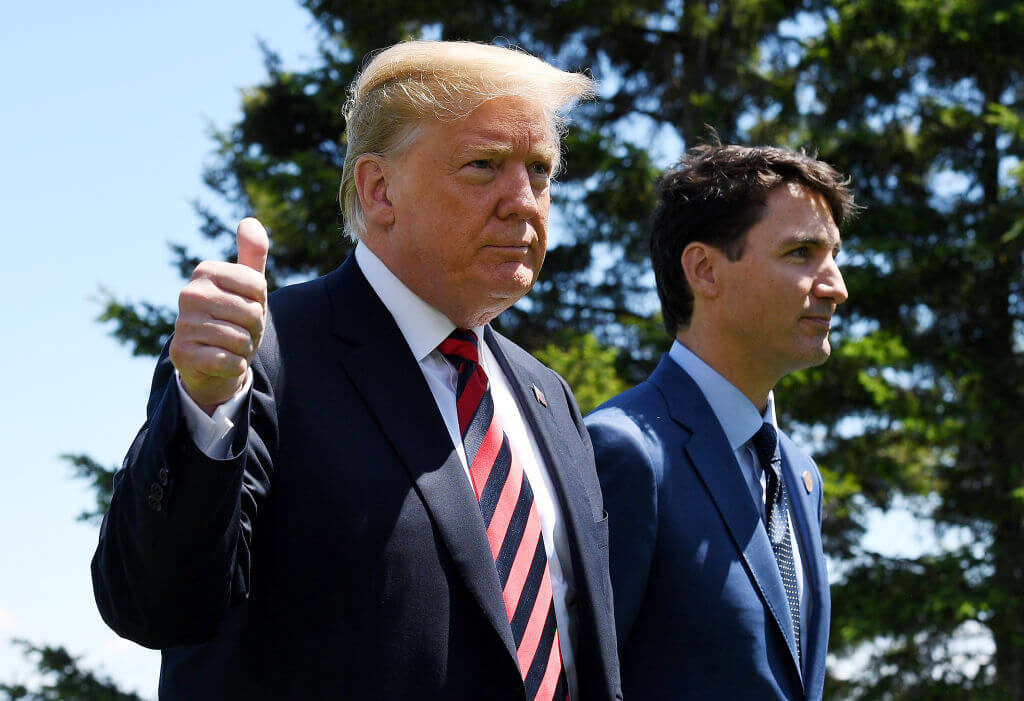Recently President Donald Trump and Mexico’s president-elect Andres Manuel Lopez Obrador were working amicably on the renegotiation of the 1994 NAFTA agreement while Canadian Prime minister Justin Trudeau has been regulated to waiting in the wings.
The reasons the negotiation excludes the northern neighbor are many. One of the more curious reasons has to do with milk.
After China, Canada is the United States’ second biggest trading partner in dairy, and slaps a 270 percent tariff on all U.S. dairy imports. Canada’s tangled web of tariffs and quotas are designed to ensure Canadian egg, poultry and dairy farmers receive fair pricing. This supply management system is considered sacred to Canadian farmers and consumers alike.
The U.S. and Trump have been pushing back, demanding more ingress into this protective dairy economy and calling for more of a free-trade model.
One way the U.S. dairy farmers have found a way around this heavy dairy tariff is in what’s called diafiltered milk.
What’s Milk Got to Do With It?
Diafiltered milk is basically milk flushed and filtered, leaving a solid remnant of high protein. Reduced to a powder, it’s more readily transported and easier to store than milk. This milk byproduct has been used by Canadians for years to make cheese due to its high protein content and fewer waste attributes. And the process to make diafiltered milk requires technology most Canadian plants are not equipped to handle.
Because it’s categorized as a protein, created after 1994, diafiltered milk it is not subject to the same tariffs as other dairy products, so U.S. milk farmers have enjoyed unfettered access to sell across the northern border. Many U.S. milk processing plants have been built along the border in Wisconsin and New York in response to Canadian demand.
Most of the product went to Canada as U.S. producers do not use this process to make their cheese.
But recently things have changed.
Canadian dairy farmers, especially those in Quebec province, have been demanding cheese to be made with more milk and less of the imported diafiltered milk. The complaint being their milk industry has suffered greatly and put their farming operations at risk.
They’ve also instituted a reclassification of the milk protein, Class 7, which has allowed Canadian farmers to now complete with U.S. suppliers. This reclassification, along with Canada’s governing controls, have effectively priced the U.S. and others like Australia out of the milk market.
One more issue is butter. Butter, now considered healthy again, has created an increased demand for butterfat. In response, Canada has been increasing its milk production. The processing plants which the U.S. dairy farmers served are now buying from Canadian farmers at a lower cost.
Come 2019, Trudeau May Need a Cookie
During the 2016 election, Trump had to win Wisconsin to secure the presidency. Wisconsin, home to 8,500 dairy farms, is the king of milk inside the U.S. Trump dominated 18 rural counties that Obama carried in 2012, counties tied heavily to dairy. To appease those voters, Trump campaigned to renegotiate the NAFTA agreement and Canada’s tricky dealings with cows.
Trudeau now finds himself in a political game of pickle. With an election of his own looming in 2019, he must show his milk farmers and their heavy agriculture-weighted community he is pulling for their interest and not yielding under Trump and U.S. pressure.
About 60 percent of Quebec’s agriculture sector falls under Canada’s sacred supply management system. Ontario and Quebec, where most of the milk farmers live, is a huge political base and one Trudeau will need to win to stay in office.
Though the Ottawa province seems ready to cry uncle and signaled it may be ready to deal, even as Quebec Premier Philippe Couillard warned any weakening of their supply system would have “negative political consequences.”
Even Trudeau, to the dismay of Canadian farmers, has shown signs of cracking. Along with milk problems are other issues like a low unemployment rate that hides a huge productivity gap when compared to U.S. output. Yet, others opine Trudeau could scrap the whole treaty just to save their revered supply management system.
As for the NAFTA treaty, the U.S. continues to enjoy the upper hand against an increasingly nervous prime minister trying to figure out how to stay in office. In the coming months, this battle may prove entertaining between The Donald and the Darling of Socialism.
